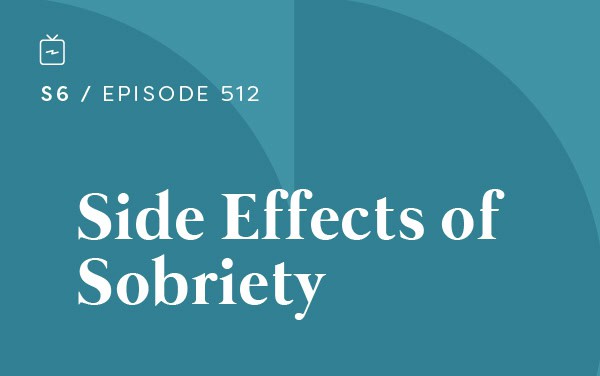
by Kris Oyen | Dec 9, 2024 | Podcast
Podcast: Play in new window | Download
Subscribe to the Recovery Elevator Podcast Apple Podcasts | | More
Episode 512 – Side Effects of Sobriety
Today we have Tammy. She is 61 years old from San Diego, CA. She took her last drink on September 6th, 2021.
Sponsors for this episode:
Better Help – code ELEVATOR for 10% off of your first month
Registration for Dry January is now open. When you sign up for Restore, you not only get access to the course, but you also get access to the whole Café RE community. If you sign up in December, you get access to the community for the rest of December and all of January. This is Recovery Elevator most intensive alcohol-free course. We will meet 14 times in January and it’s all about accountability.
Free Relapse Prevention Plan
[04:26] Thoughts from Paul:
Paul recently came across a post from someone who recently quit drinking, and they included a list of things they no longer suffer from. Or this could be said that these are the possible side effects of sobriety.
Paul shares the extensive list ranging from the loss of anxiety and depression to improvements to their body – both functions and appearance.
Life is hard in the first place, and you layer on just a couple of the ailments listed, then you’re living life in hard mode. That list really drives the point home that alcohol is taking way more than it is giving.
Paul is a big fan of pen to paper, pro and con sheets, all that jazz. He suggests writing down for yourself what you’ve experienced when you take some time off booze and imagines it’s going to look similar to the list he just shared.
[08:30] Paul introduces Tammy:
Tammy is 61 years old and lives near San Diego. She is married and together they have six adult children. She worked in advertising before having children and after they were older, she became a real estate agent. For fun, Tammy started writing a book about her alcohol-free journey, and also enjoys researching her ancestry.
Tammy says her drinking began as typical binge drinking on the weekends in high school and then escalated a bit in college. After graduating she began to work in advertising where drinking during the day was normal. Tammy’s drinking cut back after she started having her children. She says she didn’t drink very often while raising her daughters.
After turning 40, Tammy began allowing herself a glass of wine at the end of the day. It was used as a reward for making it through the day with three young children. After the financial crisis, Tammy and her husband had to sell their dream house. There was a lot of strain on their marriage as well and they eventually divorced. Finding herself alone raising three daughters, Tammy would start drinking more.
After she began dating her current husband, Tammy says her drinking slowed down. He was sober but didn’t mind that she drank. After a while they got engaged and moved in together. Tammy says things were going great and then COVID lockdown found the family coming and going a lot, and it was a party all the time. She was exhausted all the time and even though she knew it was due to her drinking she wasn’t ready to quit. Over the summer after their wedding, she had some failed moderation attempts and there were a lot of birthday parties. After the last party around Labor Day, Tammy had a moment of clarity where she knew she had to quit.
After Tammy had quit, she started reading books and listening to podcasts. She wasn’t interested in AA although she does see it’s value and it helped her husband. The scientific information blew her away, Tammy says. She slept a lot in the first month of sobriety. After that, she began to notice her general health was improving. The value of hearing people’s stories on podcasts has helped Tammy a lot. By writing her book, she wants to help lift people up and show them the way.
Tammy’s parting piece of guidance: get quiet and just listen to yourself and believe in yourself.
Recovery Elevator
You took the elevator down; you got to take the stairs back up.
We can do this.
I love you guys.
RE merch
Café RE
Recovery Elevator YouTube
Sobriety Tracker iTunes
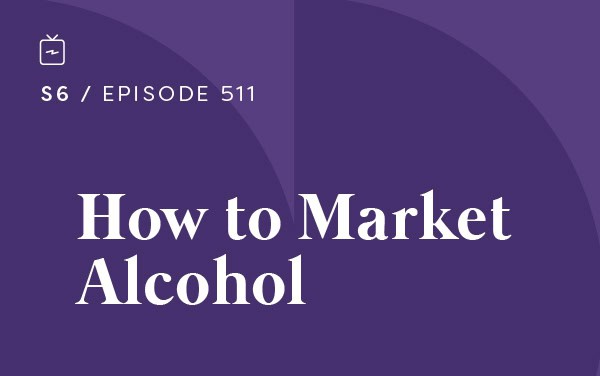
by Kris Oyen | Dec 2, 2024 | Podcast
Podcast: Play in new window | Download
Subscribe to the Recovery Elevator Podcast Apple Podcasts | | More
Episode 511 – How to Market Alcohol
Today we have Arlina. She is 55 years old from Boise, ID and took her last drink 30 years ago.
Restore – registration opens Monday December 2nd. This is Recovery Elevator’s most intensive AF course for someone looking for extra accountability for Dry January.
Recovery Elevator’s first ever AF Songwriting course will be in February 2025. During the six-week course, participants will write, edit and perfect a song that you’ll perform for the cohort in week six.
Sponsors for this episode:
Better Help – code ELEVATOR for 10% off of your first month
[03:09] Thoughts from Paul:
When Dr. David Nut, a British researcher was tasked by the government to put a harm score on 20 of the world’s drugs, it wasn’t crack, heroin, meth or cocaine in the number one spot. It was alcohol. Especially when looking at the economic impact.
Paul says that when he becomes president, he would not attempt prohibition, which was an epic fail in the early 20th century. But he would promote education about the effects of alcohol early and often focusing on the fact that NONE is the healthiest amount to drink.
Also up to be reformed would be taxes, advertising, labeling and taking responsibility for it’s trash and recovery for those affected by their product.
[08:02] Paul introduces Arlina:
Arlina has been sober since April of 1994 when she was 25 years old. Arlina was also a guest on Episode 232 five years ago. She grew up in California but now lives in Idaho. Arlina spent time working as an account executive for both large and small companies, but now enjoys crafty things and making soap. She is married and they have two grown sons and an English bulldog.
Early childhood was difficult for Arlina. After some traumatic events, the idea that something was wrong with her was instilled in her. Arlina began to feel like if she couldn’t be good, she could be good at being bad. Her first drink happened when she was around 9 years old when she had the urge to escape her feelings. Drugs and alcohol anesthetized her pain. Binge drinking was what Arlina did most of her drinking career and says that it was fun at first, then became fun with problems, and finally it was just problems. She says she didn’t have connection with herself, so she was seeking external validation through her drinking.
Two years before quitting, Arlina knew she had a problem and didn’t want abstinence to be the solution, so she tried moderation for a while. Eventually she was able to quit drinking, but it was a few more months before she realized that marijuana caused the same issues for her, and she quit that as well. Arlina shares some concepts from the book What Happened to You? The main concept being that our coping mechanisms used when we are young are repurposed when we are older. She says she has done and continues to do a lot of work to help her stay away from the default.
Arlina has recently written a book called The 12 Step Guide for Skeptics. She hopes with this book that she will show others that the 12-step process is a worthwhile process for everyone.
Arlina still goes to AA meetings even after thirty years of sobriety because it fulfills several things for her. The need for connection, the need for service, review of the information that got her sober and it gives her a place to process her feelings
Arlina’s parting piece of guidance: all the answers are inside of you. Be kind to yourself and just be patient.
Sober Life School
The 12 Step Guide For Skeptics
One Day at a Time
[49:58] Outro:
This podcast isn’t about demonizing alcohol, but we also don’t want to keep our head in the sand. And if we have an opportunity and platform to speak our mind to make positive change, then we have to do it.
Keep showing up, I love you guys.
Recovery Elevator
We took the elevator down; we got to take the stairs back up.
We can do this.
RE merch
Café RE
Recovery Elevator YouTube
Sobriety Tracker iTunes
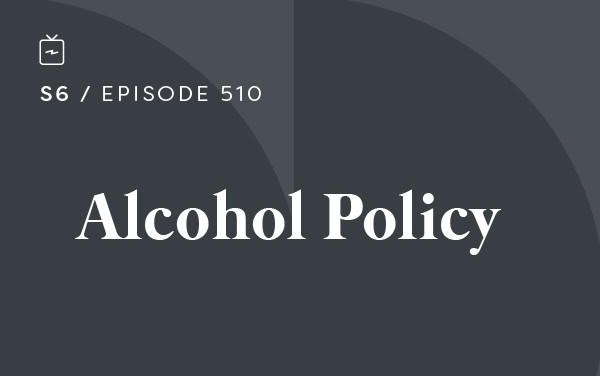
by Kris Oyen | Nov 25, 2024 | Podcast
Podcast: Play in new window | Download
Subscribe to the Recovery Elevator Podcast Apple Podcasts | | More
Episode 510 – Alcohol Policy
Today we have Kevin. He is 42 years old, from Fresno, CA and is celebrating 500 days at the time of this recording.
Sponsors for this episode:
Better Help – code ELEVATOR for 10% off of your first month
AG1 – free gift with your first subscriptions, in addition to their Welcome Kit.
Restore – registration opens Monday December 2nd. This is Recovery Elevator’s most intensive AF course for someone looking for extra accountability for Dry January.
[03:34] Thoughts from Paul:
Happy Thanksgiving Week! Life is not perfect but there is so much to be thankful about. Paul shares that when a sponsor first challenged him to write down five things he was grateful for each day, he could not do it. Nowadays he recognizes so much to be thankful for.
This entire week is all about gratitude and giving thanks. This is a tradition in our modern culture that tells us to come together as a family and give thanks. Plus, there’s pumpkin pie.
A tip to help you stay sober this Thursday and throughout the week: create accountability, AKA, Burn the Ships. It doesn’t have to be with everyone in your family, but at least somebody who isn’t your dog has to know you won’t be drinking. And don’t forget to bring your own drink of choice to any gathering you attend.
[08:32] Paul introduces Kevin:
Kevin is 42 and lives in the Fresno area. He owns and operates a commercial landscape business. He is married and has one daughter in college and a son in third grade. For fun, he enjoys nature, reading, CrossFit, playing golf and coaching his son’s sports teams.
Kevin says he first drank in high school, and it was the typical weekends and parties, but nothing too dramatic. In college it turned into regular Thursday through Saturday thing. He equated drinking with a good time and doesn’t really have many regrets.
Right before Kevin’s senior year of college, he found out his long-time girlfriend was pregnant. They ended up getting married and Kevin went on to finish college. Shortly after his daughter was born, he completed college, and his wife and daughter moved in with him.
Drinking became a reward for him and happy hours were commonplace. At one point he recalls telling a coworker he needed to quit drinking during the week. This was his first thought about moderating. He says it didn’t stick.
Kevin’s wife was his drinking partner and when she decided to quit for health reasons, Kevin opted to continue. Over time, it strained their relationship, and she would ask him to cut back and moderate. Kevin would try, but it wouldn’t last long. He started to realize it was a problem when he was concealing some of his drinks so that she wouldn’t know how much he had.
After discovering the RE podcast, Kevin didn’t initially hear anyone he identified with. Once he did, however, he realized that he was not alone with the issues he was having.
He knew he had to quit but wasn’t sure when. Kevin didn’t think AA would be for him. He eventually went to some meetings and would get a little time away from alcohol but would go right back to it mainly in isolation. The cycle continued for a while.
Now with 500 days, Kevin reflects that initially focused on how he could get to 200 days instead of the day in front of him. He had to really embrace AA in order to change his thinking. Taking things one day at a time and being present has become important to Kevin. Acknowledging and moving past some resentments was very helpful for him.
Since ditching the booze, Kevin says that he is able to deal with whatever happens in life without the need to numb. He has a lot less anxiety and stress about things and has more confidence that alcohol will not fix things for him.
Kevin’s parting piece of guidance: don’t quit quitting.
Recovery Elevator
We took the elevator down; we got to take the stairs back up.
We can do this.
I love you guys.
RE merch
Café RE
Recovery Elevator YouTube
Sobriety Tracker iTunes

by Kris Oyen | Nov 18, 2024 | Podcast
Podcast: Play in new window | Download
Subscribe to the Recovery Elevator Podcast Apple Podcasts | | More
Episode 509 – It’s a Sobriety Problem
Today we have Nicole. She is 46 years old from Fairfax, VA. She took her last drink on May 18th, 2023.
If you are seeking community on your alcohol-free journey, Café RE is just the place. We have been off Facebook for over a month, and we love our new home. In addition, we are also a non-profit. We would love to see you there!
Restore – registration opens Monday December 2nd. This is Recovery Elevator’s most intensive AF course for someone looking for extra accountability for Dry January.
Sponsors for this episode:
Better Help – code ELEVATOR for 10% off of your first month
[03:32] Thoughts from Paul:
Paul is always saving lines or notes that he would like to use in future podcasts. Today he reads a bunch of those that haven’t quite found a home yet. This includes random stats, some of the consequences of drinking, how alcohol affects us, and that connection is an important component in our lives regardless of addiction status.
[09:02] Paul introduces Nicole:
Nicole lives in northern Virginia with her partner. They have three cats, one dog and three horses. Nicole and her partner both participate in dressage and eventing. She enjoys running marathons.
Nicole says she did not start drinking when she was young. When she was in her late teens she started a 12 year long modeling career. Due to the weight restrictions around her modeling contract, she says she could not afford the calories from alcohol.
Her drinking began when she was in grad school in her 30s. She began casually drinking with some friends and was always a little leery of alcohol with an unexplainable concern that she might develop a problem but ignored it. COVID definitely had an impact on her. Around that time, she was also going through a divorce and her father had developed some chronic health issues.
Nicole feels she had control of her drinking for five to seven years and reflects that it’s like you have control of it until you don’t. She says she wasn’t the type to drink to excess which allowed her to compare herself to others and believed she didn’t have a problem. Ignoring the red flags in her drinking habits, it was when Nicole caught herself shaking while trying to sign in to a work conference that she realized she was having consequences. Because she minored in addiction studies, she feels that knowledge pushed her to observe herself and her drinking.
Nicole decided to try to cut back on her drinking like she did with smoking. She was not able to successfully do it. She was beginning to realize she had to drink even when she didn’t want to. Nicole started looking into outpatient rehab and no one would take her because she was having shakes. She reluctantly went to inpatient rehab with the plan of staying for one week. Nicole ended up doing the full 30 days after realizing she could not do this alone. She uses Vivitrol (Naltrexone) and is a proponent of medical treatment for addictions.
Nicole didn’t do AA having a hard time wrapping her ideas around it. She chose therapy and SMART recovery. Her background in science has helped her understand possible triggers. She finds having a plan very important to avoid boredom, which she learned is a trigger for her. Nicole feels that the intensity of the coping mechanism needs to match the intensity of the craving.
Nicole’s parting piece of guidance: you are not alone, be pro-choice in your recovery, try to trust yourself a little bit.
[00:00] Outro:
If there is a question that you would like to have Paul answer on the air of the RE podcast, record a voice memo and email it to info@recoveryelevator.com. We will select a coup for Paul to answer on the air.
Recovery Elevator
We took the elevator down; we got to take the stairs back up.
We can do this.
RE merch
Recovery Elevator YouTube
Sobriety Tracker iTunes
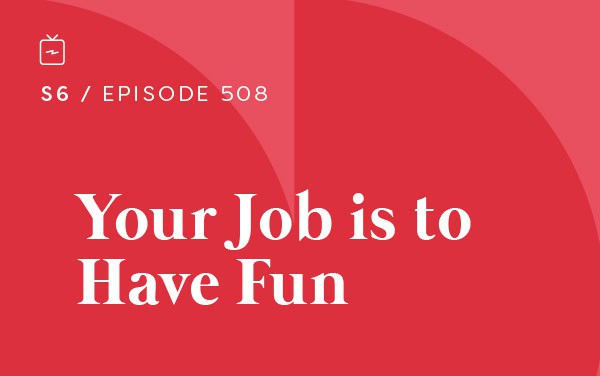
by Kris Oyen | Nov 11, 2024 | Podcast
Podcast: Play in new window | Download
Subscribe to the Recovery Elevator Podcast Apple Podcasts | | More
Episode 508 – Your Job is to Have Fun
Today we have Fanny. She is 39 years old and lives in Wilmington, NC. She took her last drink on February 3rd, 2021.
Recovery Elevator is going back to Peru in October 2025. On this 10-night, 11-day trip of a lifetime, we will be hiking the Inca Trail and participating in two service projects. Registration opens January 13th and closes May 30th in order to secure tickets to the Inca Trail.
Sponsors for this episode:
Better Help – code ELEVATOR for 10% off of your first month
Sober Link – $50 off of device using this link
[01:43] Intro:
Better Rhodes recently sent Paul a couple of drinks to sample, and he shares that they were all fantastic. Gone are the days when O’Doul’s was the only alcohol-free option around. Paul says his favorite was Hiyo.
Better Rhodes – code RECOVERYELEVATOR15
[04:05] More thoughts from Paul:
Paul shares an article called Benefits of Play for Adults that shares the importance of being playful as adults. Remember that as a child, you were naturally playful without alcohol. Somewhere along the way we forget how to be playful and then we link alcohol with having fun.
This is great news for healing. Just like some of us have goals to hit a certain amount of steps in our day, you should aim to have at least a certain amount of laughs. Laughter is the best medicine and some of the side effects may be a boost to your immune system, release of endorphins, reduction of stress and anxiety and improvement of mood.
Your job, listeners, is to have fun. The healing pathway will contain challenges, but overall, it cannot be more stressful or boring than when you were drinking. You need to have fun and please don’t take yourself too seriously at any moment on this journey.
[09:48] Paul introduces Fanny:
Fanny has lived in NC most of her life and recently proposed to her fiancé who she plans to marry in March. For her profession, she says it’s all things food. Recipe developer, food writer and content creator. For fun, Fanny enjoys outside activities such as biking, hiking and walking her dogs.
During high school and college, Fanny says she drank like any other college kid and always enjoyed a party. Over time, Fanny found herself using alcohol to push down negativity and some lingering questions about her sexuality.
When Fanny moved to California for a while, she said drinking was fun again. She says she learned a lot about herself there including that she didn’t want to be an actress, her real passion was food, and she found herself wanting to return to North Carolina.
After moving back, Fanny met someone, and they eventually married. Drinking was a big part of their lifestyle. They moved to Illinois for his job right before the pandemic and found themselves isolated without family and friends. Fanny says the drinking ramped up and there were some incidents that gave her a lot of guilt and shame. They eventually divorced and Fanny moved back to NC.
Fanny started a relationship with a friend from college who expressed their concerns over drinking because their ex had an issue. Fanny assured her that she was not like she was in college. After a two-day bender, it was Fanny’s girlfriend that helped her call her parents and get some help. Fanny was able to find a rehab in Western NC with the help of her therapist.
Fanny says the first few days were tough, but eventually she settled in and became a sponge trying to learn everything about the addiction. Through her rehab she was exposed to several different recovery modalities and found she enjoys Recovery Dharma the most. She really identifies and enjoys the Buddhist perspective on recovery.
Recovery Elevator
We took the elevator down; we got to take the stairs back up.
We can do this.
Café RE – promo code OPPORTUNITY waives the set up fee
RE merch
Recovery Elevator YouTube
Sobriety Tracker iTunes
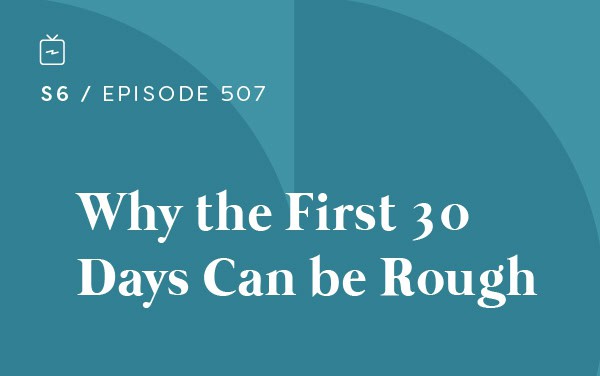
by Kris Oyen | Nov 4, 2024 | Podcast
Podcast: Play in new window | Download
Subscribe to the Recovery Elevator Podcast Apple Podcasts | | More
Episode 507 – Why the First 30 Days Can be Rough
Today we have Jason. He is 56 years old and from Minneapolis, MN. He took his last drink on December 31st, 2021.
Sponsors for this episode:
Better Help – code ELEVATOR for 10% off of your first month
[01:06] Intro:
In today’s episode you are going to hear Jason say that he doesn’t identify as an alcoholic. How many alcoholics do you think have been interviewed on the podcast? Paul says the answer is zero.
Zero because whenever people hear the word alcoholic, the first things that come to mind are homeless, living under a bridge, brown paper bag. Zero guests have fit this description.
Studies show that only 5% of alcoholics are actually homeless, living under a bridge, etc. However we are all walking the same path regardless of how far it takes us.
It’s never too late to get help, and we’ve got your back. The real villain here is alcohol, not the addict. In 2024, you can be alcohol-free, you can be sober, you can be sober curious, you can be an alcoholic in recovery. At the end of the day it’s all about getting honest with yourself.
[04:16] More thoughts from Paul:
Drinking can be challenging in the first 30 days. Paul shares with us a piece about this that uses an analogy comparing our brain and neurotransmitters to toy boxes and toys.
During recovery, our brain is resetting itelf now that the alcohol is halted. This will take time. A couple of week to a couple of months. Go slow, be kind to yourself and let the body heal. Your part is not drinking, and the universe solves the other part which is time.
[07:36] Paul introduces Jason:
Jason has lived in Minnesota all of his lfe, currently in Minneapolis. He is married with two sons, 14 and 12. He works in sales. Jason says for fun, he is getting into golf and he is a pilot who enjoys flying for fun as well as for business.
Jason says he had his first drink as a junior in high school. It wasn’t a remarkable event but he ended up becoming a typical drinker: parties and weekends, etc. He got married when he was 21 to his first wife, and she did not drink. Therefore Jason didn’t drink much during his 20s. The company he worked in sales for, had a big drinking culture that Jason started to get more involved in. Around the same time his marriage wasn’t working out and he found himself divorced and drinking more often afterwards. At the time it didn’t feel out of control although in hindsight Jason feels it was excessive – almost daily and every weekend complete with hangovers.
In his 40s Jason met his current wife who is a social drinker. His drinking continued, but he did begin to question it. He began to try a lot of methods of moderations, some of them worked for him but it became exhausting after doing it for about five years. On December 17th of 2021, he had decided he was going to quit. He says he drank a lot for the first week or so after that as a reminder to himself of how bad it was.
On New Year’s Eve, Jason had two beers and ended up dumping out half of his third. He was done. Jason said the first month went well and the biggest thing he missed was having something to look forward to. Once he made the decision it wasn’t that hard for Jason.
Jason shares that he read a lot and listened to podcasts which really helped him. He mentions the book Almost Alcoholic which helped him identify that he was in the middle ground with his drinking. Jason has had no desire to return to drinking and his cravings were few and far between over the last nearly three years. Going forward, Jason wants to find more hobbies and things he enjoys doing with his kids. He enjoys the subtle calm that is in his life now.
Jason’s parting piece of guidance: you don’t have to identify as an alcoholic for quitting to be the best option for you.
Recovery Elevator
We took the elevator down, we got to take the stairs back up.
I love you guys.
We can do this.
Café RE – promo code OPPORTUNITY waives the set up fee
RE merch
Recovery Elevator YouTube
Sobriety Tracker iTunes








